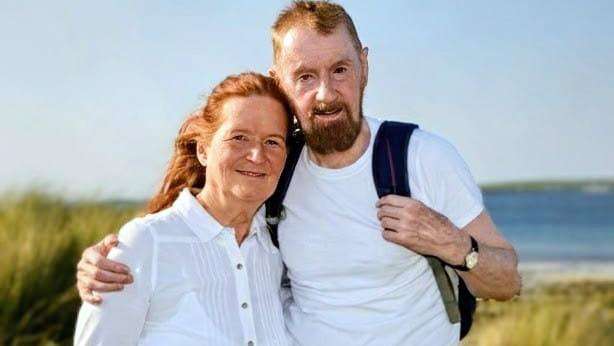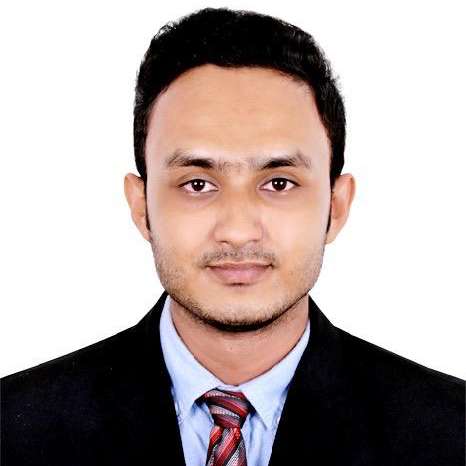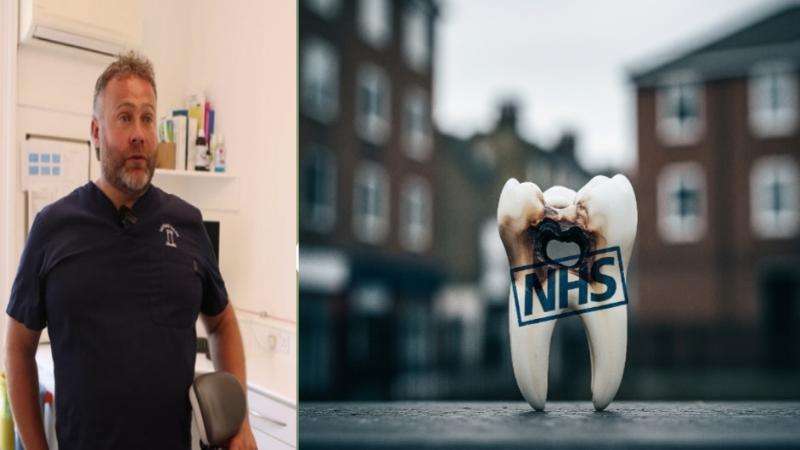A staggering £150,000 fine levied against an NHS dentist for "keeping patients too healthy" has exposed the deeply flawed heart of Britain's dental system. This shocking revelation comes as a national crisis in oral health escalates, with particular and alarming consequences for children in underserved communities, notably the British Bangladeshi population in Tower Hamlets.
Dr. Rob Mew, owner of Fairfield House Dental Surgery in Exmouth, a beacon of NHS care in a "dental desert," is facing significant financial penalties from the NHS. His 'offence'? Providing consistent, preventative care that reduces the need for more complex, UDA (Units of Dental Activity) generating treatments. This perverse incentive system, widely condemned as "not fit for purpose" by Parliament's Health and Social Care Committee, is driving dentists away from the NHS and into the private sector, leaving millions without access to vital care.
Dr. Mew passionately believes in the NHS's founding principle of "cradle to grave" care, and it is this commitment that keeps his practice partially operating under the NHS contract. However, he highlights the grim reality of the system: "We are being penalised for preventing patients from requiring more UDAs. The clawback is for not doing enough UDAs, but when patients are being looked after better, they don’t have as much need for dental work." His practice, seeing 19,000 NHS patients, regularly calls patients for annual check-ups, a proactive approach that directly contradicts the UDA-driven model which rewards more extensive procedures.
A Crisis Unfolding: Children in Pain, Communities Neglected
The impact of this broken system is most acutely felt by the UK's children. Dr. Mew recounts distressing cases: "We were seeing four and five-year-olds who had so much decay we just had to send them to hospital to get extractions. There's such a backlog of sending these kids to have general anaesthetic to get the teeth out." He also recalls a 17-year-old who, after a decade without dental care, needed an astonishing 28 fillings.
This national crisis disproportionately affects deprived areas and specific ethnic minority communities. Children within the British Bangladeshi community in Tower Hamlets, East London, are reportedly suffering significantly from dental problems. Tower Hamlets boasts the highest concentration of British Bangladeshis in the UK, with over 32% of the borough's population identifying as such. This demographic often faces unique challenges, including language barriers, cultural differences around healthcare access, and socio-economic factors that can impact dietary habits and access to preventative dental care.
While specific, updated national statistics on dental issues within the British Bangladeshi community are often aggregated under broader ethnic minority categories, existing research consistently points to higher rates of poor oral health outcomes in ethnic minority children and those from lower socio-economic backgrounds.
A 2022 report by the British Dental Association (BDA) highlighted that dental decay remains the leading cause of hospital admissions for children aged 5-9 in England. While overall child tooth decay rates have seen some reduction nationally, significant regional and demographic disparities persist. Children in the most deprived areas are consistently found to have worse oral health. Given that Tower Hamlets has areas of significant deprivation, and the British Bangladeshi community historically faces higher levels of poverty compared to the national average, their children are particularly vulnerable to the ongoing dental access crisis.
Furthermore, national data from NHS Digital's "Children's Dental Health Survey 2013" (the most recent comprehensive national survey available focusing on children's dental health across England) indicated that 34% of 5-year-olds had experience of dental decay, rising to 46% of 8-year-olds and 58% of 12-year-olds. While direct current statistics for British Bangladeshi children specifically are scarce, anecdotal evidence from healthcare professionals and community leaders in Tower Hamlets suggests these figures are likely to be higher within this demographic due to systemic barriers to accessing regular dental check-ups and preventative advice.
The BDA has repeatedly stated that the current NHS dental contract, with its emphasis on UDAs, actively discourages preventative work and makes it financially unviable for practices to treat patients with high needs, who often require more time and complex care for the same UDA value.
A System on the Brink: Dentists Forced to Choose
The disincentives embedded in the NHS dental contract are causing a mass exodus of dentists. The BDA estimates that a typical practice loses over £40 for every set of NHS dentures and £7 for every new patient exam. This financial unsustainability means many dentists are choosing to go fully private, further exacerbating the "dental desert" phenomenon seen across the country, particularly in regions like Devon and undoubtedly impacting urban areas where demand outstrips supply, such as parts of London.
The government's recently published Ten-Year Health Plan pledges a transformation of the NHS dental system by 2035. However, the BDA insists that contract reform is needed much sooner to avert a complete collapse of NHS dentistry. Care Minister Stephen Kinnock acknowledged the issue, stating, "It isn’t right that it’s less cost effective for dentists to take on patients who need more complex and extensive treatments like crowns and bridges." The government plans to introduce changes this week, including a requirement for NHS dentists to provide a set amount of urgent and emergency appointments annually.
However, for dedicated professionals like Dr. Mew, who started his NHS career at 15 in a hospital kitchen, "good will" can only stretch so far. While his practice continues its outreach efforts, offering free supervised tooth brushing at primary schools and educating parents, the financial pressures are immense. A new dental chair alone costs £30,000.
The scenes witnessed last year in Bristol, where police were called to manage crowds queuing for a dental practice that announced it would take on new NHS patients, underscore the desperation of the public. With the NHS dental budget in England only sufficient to treat approximately half the population, and dentists being "fined" for promoting good oral health, the future of accessible, preventative dental care for communities like British Bangladeshis in Tower Hamlets remains uncertain and deeply concerning.








.svg)


